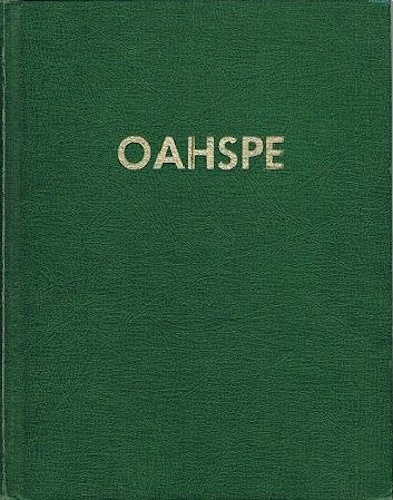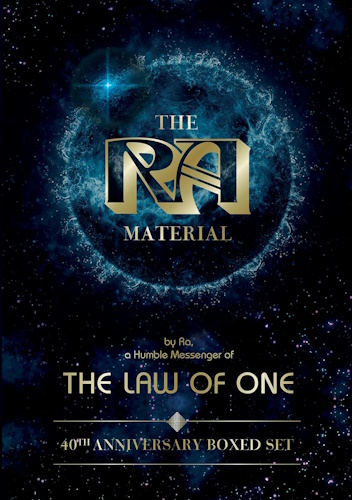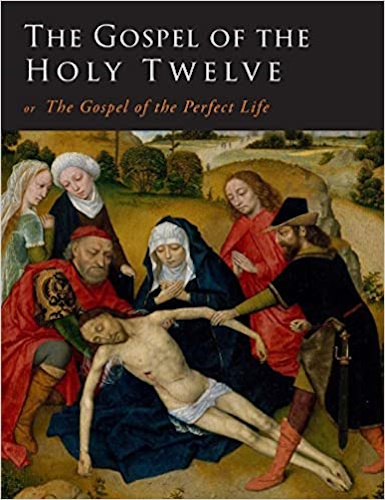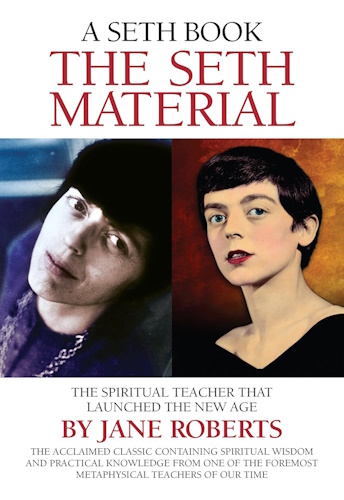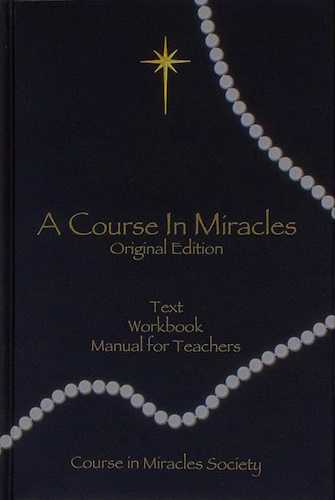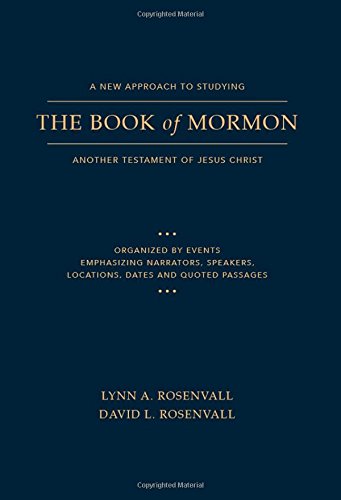
![]()
![]()
Book of the Arc of Bon
Chapter XV
1. THE king's palace and pyramids were surrounded by a wall of stone; with twelve gates, made of wood and iron. The wall was of sufficient breadth for twelve men to walk
p. 500b
abreast thereon, and the height of the wall was equivalent to twelve squares. On the summit of the wall were twelve houses for the accommodation of the soldiers who patrolled the walls. And in each and every gate-way were houses for the keepers of the gates. So that no man, nor woman, nor child, could come into the palace or palace grounds without permission.
2. And it came to pass that when Leotonas, the king's daughter, walked near the river, accompanied by her maids, she beheld a child in a basket amongst the bullrushes. Leotonas commanded her maids to fetch it to her; and when she looked upon it, and beheld it was an Israelitish child, she said: The Gods have sent him to me, and he shall be my child.
3. And they bore the child into the palace, and Leotonas said to the king: Behold, a wonder of wonders! I have found an Israelitish child in a basket in the rushes, and only Gods know how it came, or how it scaled the walls. The king said: Keep thou the child, and it shall be both a brother and a son to thee. Nevertheless, my guards shall find the way my grounds are entered, or blood will be upon them.
4. Now after some days, and when the search had been completed, and no way discovered as to the manner of the child's ingress, the king issued a decree commanding a thousand Israelitish male children to be put to death, Moses amongst the rest, unless the mother of the child, Moses, came and acknowledged as to the manner of ingress. The king allotted three days in which time the matter should culminate; but nevertheless the mother came not and acknowledged.
5. And the king called his daughter, and said unto her: What shall be done? Leotonas said: The king's word must not be broken; nevertheless, thou gavest the child to me, saying: Keep thou it, and it shall be a brother and a son to thee. And straightway I sent my maids and procured an Israelitish woman as nurse for the child. And I set my heart upon the child, nor can I part with it and live. Last night I consulted the oracle as to the matter, for I saw that thy mandate must be fulfilled.
6. The king said: And what said the oracle? Leotonas said: Give word
p. 501b
abroad that the nurse of the child is its mother. Now I beseech thee, O king, let it be heralded abroad that all is acknowledged.
7. The king, seeing the child, relented; and word was proclaimed as Leotonas had desired. And, moreover, the matter was entered in the recorder's house that the mother of the child had made the basket and placed it where it was found, though no reason was assigned therefor. Such, then, was the Eguptian explanation.
8. Now the truth of the matter was, the angels of Jehovih came to Yokebed and said: Thy son's name shall be Moses, signifying, a leader-forth, for he shall deliver the Israelites out of bondage. But he shall be taken from thee, and thou canst not find him. For the angels of Jehovih will deliver him into Leotonas' hands. And she shall adopt him as her brother and son, and bestow upon him the education of a prince.
9. Yokebed feared, for in those days male children of Israelitish parentage were outlawed, nor could any man be punished for slaying them. And Yokebed prayed Jehovih, saying: Thy will be done, O Jehovih, for I know Thy hand is upon my son. But I beseech Thee, O Father, that I may come to the princess and be her nurse for the child. The angel of Jehovih said: Swear thou before Jehovih thou wilt not betray to the child that thou art his mother!
10. Yokebed said: Though I be commanded by the king, yet will I not own that I am the mother, and it be Thy will, O Jehovih!
11. And Jehovih's angels fashioned a basket; and carried the child and placed it where it was found by Leotonas and her maids. And Leotonas, seeing it was a Hebrew child, commanded one of her maids to go and bring an Israelitish woman to nurse it. And the maid went out beyond the Utak gate and found and brought Yokebed, the child's mother, but no one knew she was its mother.
12. And when Yokebed had come before the princess, the latter said unto her: Nurse thou the child, for I will be its mother and its sister, for the Gods have delivered it into my hands. And Yokebed said: It is a goodly child; I will nurse it for thee.
13. Moses grew and became a large man, being a pure I'huan, copper-colored
p. 502b
and of great strength. And Pharaoh, having no son, bestowed his heart on Moses, and raised him as a prince, having provided him men of great learning to teach him. Moses was master of many languages, and withal made acquainted with kings and queens and governors, far and near. And he espoused the cause of the king, whose dominions held seven kingdoms beyond Egupt as tributary kingdoms, which paid taxes to Pharaoh.
14. So Pharaoh made Moses embassador to the foreign kingdoms, in which capacity he served twelve years. But because of the prejudice against him, for being of Israelitish blood, the court of Pharaoh importuned the king for his removal, and Moses was so removed from office under the king.
15. The king said to Moses: My son, this is a double infliction on me in my old days; in the first place, it is as a sword-thrust, to cut off my love to thee, lest thou some day become king; and in the second place, it is hard for a Pharaoh to be dictated to by his own court.
16. Moses replied: Fear not, O king, that my love and thine can be severed. Oft it happeneth that men are tried in a way they know not the wisdom of, but which, afterward, we realize to be the best thing that could have taken place.
17. As for myself, I think this rebuke is put upon me by Jehovih because I labored not for mine own people.
18. The king said: How so? Moses replied: For many days a great heaviness hath come upon me; it is as if the wind of heaven bore down on my heart, saying: Moses, Moses, lift up thy voice for thy people. For behold, the king, thy father, will favor thee!
19. Pharaoh said: What wouldst thou. my son? And if it be possible to be done it shall be done.
20. Moses answered: Until I have gone amongst them and ascertained their grievances, I know not how to answer thee. The king said: Go, and keep thy counsel to thyself until thou art returned.
21. So Moses departed and traveled over the land of Egupt, and was four months absent, and returned unto Pharaoh. And to him Moses related all the grievances of the Israelites; explaining the tasks put upon them;
p. 503b
their denial before the courts; their forbiddance to education; and withal extolled them highly for being a peaceful and virtuous people.
22. The king said: It is a pity; it is a great pity. But what can I do, O Moses? Thou beholdest how even thyself is chastised by the king's court. If I demand the repeal of the laws, the court will heap coals of fire on thy head and on mine.
23. Moses said: Neither know I, O king, what to do. And Moses was in great trouble of soul; and after he waited a while for his thoughts to come to him, he said: O king, this night thou and Leotonas shall reason with me, for I feel it incumbent because of the pressure on my soul.
24. When the three were alone that night, lo and behold, it was the beginning of the dawn of light. And Moses' ears were opened, and he heard the Voice of Jehovih (through His angels) saying:
25. Behold, O king, and thou, Leotonas, and Thou, Moses, now is the beginning of My power on the face of the earth. Moses, My son, thou shalt take thy people out of the land of Egupt; and I will bestow upon them the lands of the ancients, even whither I will lead thee. Change not thy laws, O king; let Egupt have her way; and let the Israelites have their way also.
26. The king said: To deliver four millions of people! O what a labor!
27. On the next day Moses walked out, going into the woods to be alone, for heavy trouble was upon him. And an angel of Jehovih appeared in a flame of fire in a bush, calling: Moses, Moses, My son! And Moses saw that the bush was not burnt, and he said: Here am I, and I heard Thy Voice.
28. The Voice said: I am the God of Abraham, and of Isaac and Jacob. Moses said: What wouldst Thou?
29. The Voice said: Go thou once more amongst thy people and say thou: I, Moses, am come to deliver you out of the land of Egupt, and into an inheritance which shall be your own.
30. Moses said: My people will ask of me: By whose authority speakest thou? What then shall I answer them? The Voice said: Say thou to them: The I AM sent me. And if they question further, saying: Thou has a deceiving
p. 504b
spirit, like the Eguptians, then shalt thou say to them: How can ye distinguish one spirit from another? and they will say: Whoso laboreth for himself will deceive us. And thou shalt say to them: Whosoever hath faith in Jehovih, let him give up all, even as I do; and let them follow me; for if a multitude go forth in Faith in the Father, then will the Father provide unto them. (For this is the meaning of Faith, from which ye were named Israelites.)
31. So Moses and his brother, Aaron, traveled about in the land of Egupt, calling together Raban families, explaining to them, and urging the people to get ready and depart out of Egupt. For three years they thus labored, and it became known far and near that the project was on foot.
32. And the oracles of the Eguptians prophesied that when the Israelites were once out of the country they would unite with the kingdoms whereto Moses had been embassador, and then return and overpower the Eguptians.
33. And in order to stigmatize Moses they said he fled away from Pharaoh's palace because he had seen two men, and Eguptian and an Israelite, fighting, and that Moses slew the Eguptian and buried him in the sand. And the recorders thus entered the report in the Recorder's House.
34. Moses was of tender heart and he inquired of the Great Spirit, saying: Will ever a voice of justice speak in my behalf? Jehovih, through his angel, answered Moses, saying: Suffer thy enemies to put on record what they will, for the time will surely come when the truth shall be revealed unto men. Pursue thy course, for it shall be shown that thou dost still visit the king; wherefore, hadst thou fled as the records state, thou wouldst not return, with the report hanging over thy head.
35. In those days Egupt was a land of glory and of misery. Hardly is it possible for words to describe the splendor in which the nobles lived. Of their palaces and chariots a thousand books might be written, and yet not reveal all. And as to the members of the king's court, so grand were they that many of them stood not on the ground from one year's end to the
p. 505b
other; but caused carpets to be spread wherever they desired to walk. And as to their chariots, they were bound with silver and gold, and set with precious stones.
36. Of the royal court and the nobles, there were two thousand four hundred and eighty, and they owned and possessed everything in Egupt, which was the richest country in the world.
37. The next in rank were the masters, who were servants and tenants to the courtiers and nobles; and the third in rank were the Faithists, called Israelites, who were servants under the masters.
38. And it was against the law for any one to call a meeting of Israelites, or to incite them against servitude to the masters; for which reason Moses and Aaron violated the law of the land, nor dared any man to arrest them, because Moses bore with him the king's seal.
39. Of the miseries of the land of Egupt, the half hath never been told, nor ever shall be; for they were of the nature of the flesh, and of such kind that one may not mention them fully, for the history would also involve the beasts of the fields, and dogs, male and female, and goats also.
40. Suffice it, the people were victims of evil spirits, and had descended to such unnatural practices as poisoned the flesh, which became inhabited with vermin; and they had running sores; and only evil practices alleviated the pains. The people were subject to entrancement by evil spirits, and the latter appeared amongst the people, taking to themselves corporeal forms for evil's sake, also eating and drinking with mortals daily.
41. When Moses beheld these things he prayed to Jehovih for wisdom and strength; for thousands and thousands of the Israelites were becoming afflicted in the same way. Jehovih answered Moses, saying: Because of the abundance of evil angels in this land, it is impossible for My chosen to dwell herein and escape affliction. Moses explained this matter to the Israelites.
42. Jehovih said: Moses, thou and thy brother shall return to the king, for he is worried concerning thee and thy labors. Behold, the nobles have complained before the king against thee.
p. 506b
43. Moses visited the king, who was sick with a fever; and the king was on his divan at the fountain in the palace grounds, and the men servants were forcing water. When the king saw it was Moses he raised up, rejoicing, and called Moses to come and sit with him. And servants ran in and told Leotonas that Moses had returned, and Leotonas came also and rejoiced to see Moses. Now whilst they were talking the king was overcome and fell in a faint, whereupon Moses raised him up and restored him; and then carried the king into the palace, in his arms carried he him.
44. Leotonas said: Moses, my son and brother, thou shalt not more leave us alone? Behold, my father is old, and he gave his heart to thee when thou wert a child. Be thou to him his son. Behold how he revives in thy strong hands!
45. Then spake the king, saying: My son, with all thy wisdom, canst thou understand a woman? Moses said: Alas, O king, save the princess, I have not studied them. But why asketh thou?
46. The king replied: Leotonas had not said one word about the affairs of the kingdom! What is uppermost in a woman's heart, that speaketh she first; but as to man, he speaketh first that which lieth at the bottom of his heart. I love thee, Moses, and delight in thy presence; but my kingdom concerneth me deeply. The nobles have complained against thee for meddling with their slaves, and for this I have desired to see thee.
47. Moses said: The Voice came to me, informing me of what thou sayest, and then commanded me to come to thee, for thou wert ill with fever. And the king replied, saying: If I should die before thou has accomplished the migration of thy people, I fear my successor, Nu-ghan, will make it hard for thee. Tell me then, therefore, how matters stand with thee?
48. Moses said: Jehovih hath planned this migration; it cannot fail. For, witness thee what proof I have found: The Israelites were looking for a leader-forth, even as I was named in the basket. And wherever I have gone, the rab'bahs and their families are acquainted with the matter as if it were born in their souls.
49. The king said: Everywhere the oracles declare against thee and Jehovih; saying thou art in the hands of evil spirits.
p. 507b
50. Moses said: What are the oracles to me? To feel assured one is in a good work; this is better than oracles.
-
Urantia Book, 44:0.11 - The Celestial Artisans
Never in your long ascendancy will you lose the power to recognize your associates of former existences. Always, as you ascend inward in the scale of life, will you retain the ability to recognize and fraternize with the fellow beings of your previous and lower levels of experience. Each new translation or resurrection will add one more group of spirit beings to your vision range without in the least depriving you of the ability to recognize your friends and fellows of former estates.
-
Princess Bride 1987 Wallace Shawn (Vizzini) and Mandy Patinkin (Inigo Montoya)
Vizzini: HE DIDN'T FALL? INCONCEIVABLE.
Inigo Montoya: You keep using that word. I do not think it means what you think it means. -
Urantia Book, 117:4.14 - The Finite God
And here is mystery: The more closely man approaches God through love, the greater the reality -- actuality -- of that man. The more man withdraws from God, the more nearly he approaches nonreality -- cessation of existence. When man consecrates his will to the doing of the Father's will, when man gives God all that he has, then does God make that man more than he is.
-
Urantia Book, 167:7.4 - The Talk About Angels
"And do you not remember that I said to you once before that, if you had your spiritual eyes anointed, you would then see the heavens opened and behold the angels of God ascending and descending? It is by the ministry of the angels that one world may be kept in touch with other worlds, for have I not repeatedly told you that I have other sheep not of this fold?"
-
Urantia Book, Foreword - 0:12.12 - The Trinities
But we know that there dwells within the human mind a fragment of God, and that there sojourns with the human soul the Spirit of Truth; and we further know that these spirit forces conspire to enable material man to grasp the reality of spiritual values and to comprehend the philosophy of universe meanings. But even more certainly we know that these spirits of the Divine Presence are able to assist man in the spiritual appropriation of all truth contributory to the enhancement of the ever-progressing reality of personal religious experience—God-consciousness.
-
Urantia Book, 1:4.3 - The Mystery Of God
When you are through down here, when your course has been run in temporary form on earth, when your trial trip in the flesh is finished, when the dust that composes the mortal tabernacle "returns to the earth whence it came"; then, it is revealed, the indwelling "Spirit shall return to God who gave it." There sojourns within each moral being of this planet a fragment of God, a part and parcel of divinity. It is not yet yours by right of possession, but it is designedly intended to be one with you if you survive the mortal existence.
-
Urantia Book, 1:4.1 - The Mystery Of God
And the greatest of all the unfathomable mysteries of God is the phenomenon of the divine indwelling of mortal minds. The manner in which the Universal Father sojourns with the creatures of time is the most profound of all universe mysteries; the divine presence in the mind of man is the mystery of mysteries.
-
Urantia Book, 1:4.6 - The Mystery Of God
To every spirit being and to every mortal creature in every sphere and on every world of the universe of universes, the Universal Father reveals all of his gracious and divine self that can be discerned or comprehended by such spirit beings and by such mortal creatures. God is no respecter of persons, either spiritual or material. The divine presence which any child of the universe enjoys at any given moment is limited only by the capacity of such a creature to receive and to discern the spirit actualities of the supermaterial world.
-
Urantia Book, 11:0.1 - The Eternal Isle Of Paradise
Paradise is the eternal center of the universe of universes and the abiding place of the Universal Father, the Eternal Son, the Infinite Spirit, and their divine co-ordinates and associates. This central Isle is the most gigantic organized body of cosmic reality in all the master universe. Paradise is a material sphere as well as a spiritual abode. All of the intelligent creation of the Universal Father is domiciled on material abodes; hence must the absolute controlling center also be material, literal. And again it should be reiterated that spirit things and spiritual beings are real.
-
Urantia Book, 50:6.4 - Planetary Culture
Culture presupposes quality of mind; culture cannot be enhanced unless mind is elevated. Superior intellect will seek a noble culture and find some way to attain such a goal. Inferior minds will spurn the highest culture even when presented to them ready-made.
-
Urantia Book, 54:1.6 - True And False Liberty
True liberty is the associate of genuine self-respect; false liberty is the consort of self-admiration. True liberty is the fruit of self-control; false liberty, the assumption of self-assertion. Self-control leads to altruistic service; self-admiration tends towards the exploitation of others for the selfish aggrandizement of such a mistaken individual as is willing to sacrifice righteous attainment for the sake of possessing unjust power over his fellow beings.
-
Urantia Book, 54:1.9 - True And False Liberty
How dare the self-willed creature encroach upon the rights of his fellows in the name of personal liberty when the Supreme Rulers of the universe stand back in merciful respect for these prerogatives of will and potentials of personality! No being, in the exercise of his supposed personal liberty, has a right to deprive any other being of those privileges of existence conferred by the Creators and duly respected by all their loyal associates, subordinates, and subjects.
-
Urantia Book, 54:1.8 - True And False Liberty
There is no error greater than that species of self-deception which leads intelligent beings to crave the exercise of power over other beings for the purpose of depriving these persons of their natural liberties. The golden rule of human fairness cries out against all such fraud, unfairness, selfishness, and unrighteousness.
